0 Comments
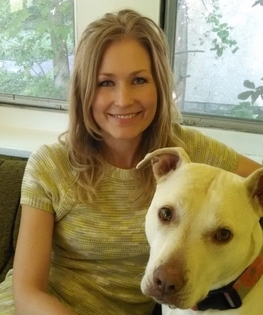 I met Tamara Jorell at a Minnesota N.I.C.E. meeting. N. I. C. E. stands for Novelists Inspiring Christian Excellence. It’s our local chapter of American Christian Fiction Writers—except that Tamara doesn’t write fiction. She writes true stories—“narrative non-fiction,” as she refers to it. In a blog called My Blonde Life in the Hood she tells stories about her neighborhood in North Minneapolis. It’s a place that reminds me a lot of where we used to live in Indianapolis a few blocks from the Butler University campus. Tamara’s neighborhood is racially, economically and spiritually diverse, full of real people, not statistics or headlines. She and her family have made it a point to get to know those people and be available to them for the sake of the Kingdom of God. My husband and I have recently returned from a road trip to Yellowstone and Grand Teton National Parks. Usually on road trips a favorite praise song runs through my head, becoming a sort of theme song of the journey. This time the song that kept returning to my mind was “America the Beautiful.” We saw no shortage of amber waves of grain and purple mountain majesties, but it was not the familiar first verse that ran through my mind so much as the later verses.
America! America! God mend thine ev’ry flaw, Confirm thy soul in self-control, Thy liberty in law! 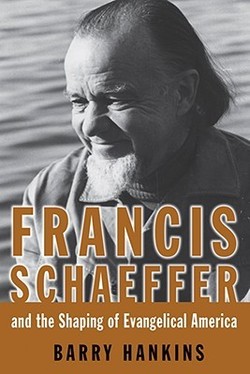 Francis Schaeffer and the shaping of Evangelical America by Barry Hankins is not a new book. It was published by Eerdmans in 2008, but I’m just now getting to it. It was a hard book to read. Schaeffer profoundly shaped my thinking as a young adult. The love with which the Schaefers received both European and American young people at L’Abri (“the Shelter”) in Huemoz, Switzerland, was as powerful an apologetic for his conservative Christian faith as his tireless teaching. Although I visited L’Abri only briefly in 1976 (and that at a time when the by-then-retired Schaeffers were away), I heard him speak several times, most notably at Covenant College in Lookout Mountain, Tennessee. Hankins’ summary of the contents of Schaeffer’s trilogy (The God Who is There, Escape From Reason, and He is There and He is not Silent) brought me back to the roots of much of my thinking that I have taken for granted for many years—the importance of worldview; the upper and lower stories that divorce faith and reason; the mannishness of man, separating us from the animal kingdom; the need to engage culture if we are going to win a world for Christ. 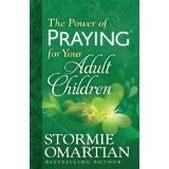 I’m now at that stage in life when my kids are grown with families of their own. When they were small, I saw them every day and sent up hourly prayers for their wellbeing. Now it is a little more challenging to know what to pray beyond, “God bless my kids and their families.” There is so much that I want for them, but despite Facebook and Google Plus, I know so little of the details that need prayer. 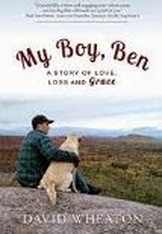 I am not a dog person. I dislike getting licked and slobbered on. I can’t stand yapping. When I see the toothpick legs of a skinny little Chihuahua everything in me wants to see how easily they will snap. (At such times, I carefully keep my hands to myself.) At least I have gotten over the terror of dogs I had as a child. That terror was based on my grandfather telling me that the little girl next door didn’t have any ear lobes because a dog jumped up and bit them off. Now, I can’t in my wildest dreams imagine that he actually said that, but for years that belief was the basis of my hysterical screams when a dog came near. I tell you this to let you know that David Wheaton must be quite a writer to have won me over with his book My Boy Ben. 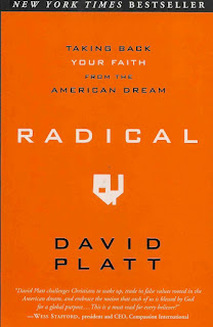 Last week we invited friends home from church to share a pot of soup and a loaf of bread hot out of the bread maker. They left us with a book by David Platt that is being passed around church--Radical; Taking Back Your Faith from the American Dream. It is easy to read, but hard to put into practice. Platt challenges the dominant culture and the assumption that living well means being comfortable and having all the toys your neighbors have. He compares his own mega-church and the whole American philosophy that bigger is better with Jesus spending three years with twelve men. 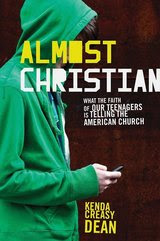 Moralist Therapeutic Deism—the religion of this age. There is a God, and he wants us to be nice and to feel good about ourselves. True, but what a watered down version of faith! It’s a far cry from “Be holy as I am holy!” This is not the religion of the apostles or martyrs, nor of medieval saints or the reformers. Moralistic Therapeutic Deism would never have driven the Pilgrims to the rocky shores of New England, or sent anyone to the Gulag Archipelago for defying an atheistic empire.  Seek and you shall find," Jesus told the disciples who crowded around him for his mountainside sermon. In the first chapter of his classic, Basic Christianity, John Stott points out, "We do not find because we do not seek. And the truth is that we do not seek because we do not really want to find." (p.25) Finding the truth would put demands on our lives, and the last thing we in the twenty-first century want is Someone else telling us what to believe or how to live. Basic Christianity is a clear, compelling and, well…, basic look at the essence of the gospel designed for those who have rejected the institutional church without really considering Jesus Christ himself. It is for young people who have grown up in the church, but never thought through their own faith, and for those who grew up outside the church and have never been introduced to Jesus as anything other than a myth or a swear word. It is for those who are prepared to seek, committed to living whatever they find to be the truth. 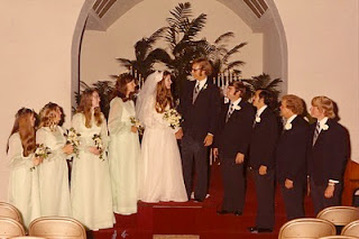 When I married my husband in 1973, it was "very important" that he not see me in my wedding gown until my father escorted me down the aisle. Our guests waited at the reception while we took pictures. When my daughters were married, we took the pictures earlier. Not being seen before the ceremony was just “not practical.” Since the sexual revolution of the 1960s, a lot more than just the pictures has moved before the ceremony. |
AuthorLeAnne Hardy has lived in six countries on four continents. Her books come out of her cross-cultural experiences and her passion to use story to convey spiritual truths in a form that will permeate lives. Add http://www.leannehardy.net/1/feed to your RSS feed.
To receive an e-mail when I post a new blog, please subscribe.
Categories
All
Archives
November 2022
|


 RSS Feed
RSS Feed